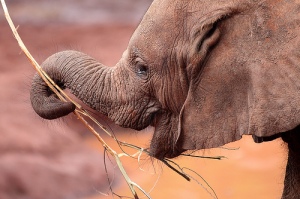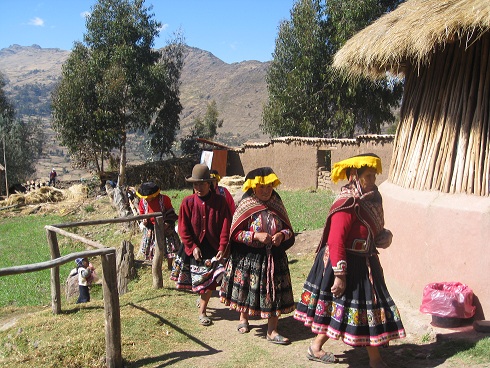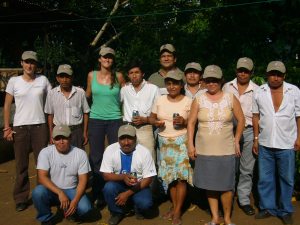travelers
How to be a responsible traveler
Inspired by our own experience and others’ opinions Zuvy has developed its own guidelines for the Zuvy travelers. If you have never done it, “travel giving” , “community tourism”, “philanthropy tourism” is a very different kind of travelling to what you are used to and, as Zuvy, we are very concerned about training our visitors before they embark on the experience. I wanted to share with you, the main points we have identified to build what we believe in fact is “responsible tourism”. Please read below and if you have comments about the points hereafter identified we would appreciate of you could let us know.

1. Interact genuinely with the people you are going to meet. The organization’s staff devotes their lives to trying to make the community a better place. Respect their work in every level. The project beneficiaries are friendly and intelligent people that just happen to have adapted to different surroundings, but they are just like you and me!
2. Do not expect to have a big, direct impact on the organization you are visiting. You will be involved in the project activities and your assistance will be helpful to the project, but that is not the reason you are there. Remember that Zuvy experiences are designed to learn: learn about a different culture, different ways of living and realities from what you find at home.
3. Always maintain a positive attitude towards the unexpected. Anything can happen in an emerging country, including the areas you will be visiting. You may not be able to complete the agreed schedule, food and transportation may not be provided in the most convenient way, the staff member of the organization may be late to pick you up or he may fail to arrive for various reasons (e.g. he is stuck in a traffic jam, had to take a child to the hospital, etc). Zuvy is not responsible for any of this, you agree to the risk of the unexpected. In short: expect the best, but be prepared for the worst.
4. Avoid flashy clothing, expensive jewelry or watches, or anything that may promote the privilege of the tourist. People with fewer resources than you, are in many cases, much more generous and respectful than we would expect, but it is better to avoid any unforseen situations.
5. Handouts and monetary donations to the people are strictly forbidden. You will create chaos and quickly establish the assumption that tourist equals gifts. You may donate through Zuvy to the organization or to the organization directly, but never directly to the beneficiaries. Remember that the organization has been working there for a long time and has more knowledge than you of how to benefit the community.
6. Pictures and videos are allowed with extreme respect. Please ask before taking pictures especially of children. Avoid the paparazzi style and be discrete. If you want to have a lot of pictures, please ask the organization to share some of their photographs with you.
7. In kind donations are only accepted upon request from the organization. If you wish to take school supplies, medicine or clothes please check with us and we will let you know if they will be helpful to the project.
8. Respect people’s privacy. Do not peak through windows or doors. You can ask people questions, but always with genuine interest and respect. They will enjoy telling you about their lives if you enquire with a constructive attitude.
9. Talk about your experience when you get back home and share it with your friends and family. Sharing your experience is the best way for you to give exposure to the organization. Take some time to write about it and we will share it with everyone on the Zuvy website.
10. Most importantly, enjoy yourself! You have ahead of you an amazing and rare opportunity to meet new people and to learn about a different reality. Take your thoughts back home, feel inspired and transform them into action in your own community!
Actividad inolvidable antes de subir a Machu Picchu
En Perú, Bolivia y Ecuador estamos colaborando con la Fundación Codespa, dando difusión a sus programas de turismo solidario, auto-gestionados directamente por poblaciones indígenas de escasos recursos, está logrando que las comunidades participantes consigan beneficios directos de la actividad turística, prestando sus servicios a más de 50.000 turistas cada año.
Incluyo aquí un extracto de la experiencia de Lucía y Guillermo, que fueron los primeros que gracias a Zuvy vivieron la experiencia de Tejedores del Ande antes de emprender rumbo a MachuPichu

“Perú en general precioso, y la experiencia Zuvy fue increíble. Nos recibieron muy amablemente, y en principio nos vistieron con ropas típicas (de eso no os mando fotos que es un corte!). Luego nos enseñaron todo el proceso desde qué plantas tiñen qué colores, como se hierve para sacar el color, cómo se esquila la oveja, como se hila y se hace el ovillo, a como se teje. Estuvo francamente bien. […] Al acabar nos dieron de comer (muy abundantemente!!) y luego nos enseñaron los productos terminados y compramos alguna cosita. ”
Más de 3.000 personas ya se benefician de este proyecto de turismo comunitario, financiado por el Banco Interamericano de Desarrollo, Junta de Andalucía, Fundación Repsol y Fundación Roviralta. Entre los logros conseguidos, destacan: la puesta en marcha de rutas turísticas en los tres países, alianzas con operadoras turísticas de cada país y con gobiernos y 20% promedio de incremento de ingresos. Les damos la enhorabuena desde Zuvy y esperamos que sigan consiguiendo muchos más!!
Viviendo el impacto de los micropréstamos en Guatemala
Invitamos a nuestra amiga Mónica a contarnos un maravilloso viaje que hizo por Guatemala. Os dejamos con ella! La experiencia en Guatemala fue muy especial. En principio íbamos de turismo, a conocer los lugares más recónditos del país, de la mano de nuestra amiga Myriam, que vivía allí desde hacía casi un año. Queríamos conocer sitios interesantes, pasárnoslo bien, y ver de primera mano cómo vivía nuestra amiga allí, qué amigos y trabajo tenía, y en definitiva, cómo se había montado su vida.  Myriam trabajaba en una consultora de desarrollo, y dirigía diversos proyectos de cooperación en poblados alejados en comunidades rurales. Tuvimos la suerte de conocer, ver y ayudar, aunque tan sólo fuera por un día o dos, a las personas con las que trabajaba Myriam, a quien tanto agradecían y admiraban. Para mi, que trabajo en recursos humanos fue increíble descubrir el poder de los micropréstamos en las vidas de la gente. Con un poco de ayuda y asesoría pasan a ser empresarios y a tener ingresos continuos para sus familias.
Myriam trabajaba en una consultora de desarrollo, y dirigía diversos proyectos de cooperación en poblados alejados en comunidades rurales. Tuvimos la suerte de conocer, ver y ayudar, aunque tan sólo fuera por un día o dos, a las personas con las que trabajaba Myriam, a quien tanto agradecían y admiraban. Para mi, que trabajo en recursos humanos fue increíble descubrir el poder de los micropréstamos en las vidas de la gente. Con un poco de ayuda y asesoría pasan a ser empresarios y a tener ingresos continuos para sus familias.
 Lo que en principio era un viaje de placer, de hacer turismo y divertirnos con nuestra amiga, se convirtió en una experiencia preciosa, puesto que también pudimos ayudar y tener contacto con proyectos y gente que de otra manera hubiera sido imposible hacer. Os incluyo algunas fotos. Una recogiendo el piñón que luego transformaban en bioetanol y otra de nuestra amiga con la gente de la comunidad.
Lo que en principio era un viaje de placer, de hacer turismo y divertirnos con nuestra amiga, se convirtió en una experiencia preciosa, puesto que también pudimos ayudar y tener contacto con proyectos y gente que de otra manera hubiera sido imposible hacer. Os incluyo algunas fotos. Una recogiendo el piñón que luego transformaban en bioetanol y otra de nuestra amiga con la gente de la comunidad. 
- ← Previous
- 1
- 2
- 3
- Next →

